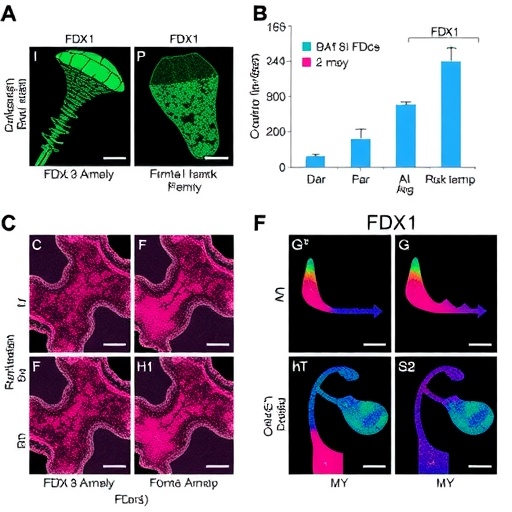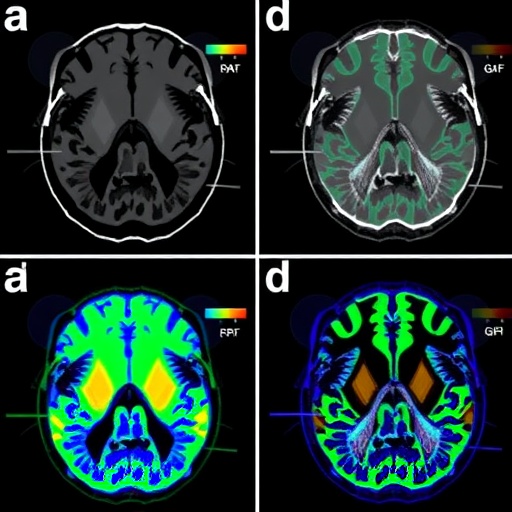PROTECT YOUR DNA WITH QUANTUM TECHNOLOGY
Orgo-Life the new way to the future Advertising by AdpathwayIn the expanding landscape of maternal health research, one pivotal area of investigation has emerged: the impact of alcohol consumption during pregnancy. Recent findings, as synthesized in a groundbreaking study by Peltier et al., shine a light on the often-overlooked nexus between social determinants of health and the alcohol consumption behaviors of expectant mothers. This study not only addresses the prevalent issue of alcohol use during pregnancy but also delves deeper into how socioeconomic factors shape these behaviors, ultimately influencing maternal and fetal health outcomes.
Understanding the significance of alcohol use during pregnancy is critical, as it remains a leading cause of developmental disorders in infants. Conditions ranging from Fetal Alcohol Spectrum Disorders (FASD) to more subtle neurodevelopmental delays can occur as a result of prenatal alcohol exposure. This extensive range of outcomes emphasizes the necessity of addressing alcohol consumption in pregnant women, which is central to Peltier et al.’s research. The findings suggest that alcohol use is not merely an individual choice but is closely entangled with a web of social factors including income, education, and access to healthcare services.
The contributions of this research are profound, particularly in the context of public health campaigns aimed at reducing alcohol consumption among pregnant women. By exploring the role of social determinants, the authors highlight that health education and intervention strategies cannot be one-size-fits-all. The social environment, cultural norms, and economic stressors play a decisive role in whether a pregnant woman chooses to consume alcohol. For instance, lower socioeconomic status often correlates with increased stress and associated coping mechanisms, including alcohol use.
Moreover, the research delineates how stigma and social isolation can influence drinking behaviors. Pregnant women facing social isolation due to stigma may find themselves more inclined to consume alcohol, either as a means of coping with their circumstances or as a way to seek comfort. This aspect underscores the need for community-based interventions that foster support systems for pregnant women, aiming to mitigate the impact of negative social determinants and encourage healthier choices.
The study also emphasizes the imperative of healthcare provider awareness. It advocates for thorough screening practices during prenatal visits that extend beyond basic health inquiries. Providers are urged to understand their patients’ social contexts, facilitating conversations around alcohol use that are sensitive to the surrounding socioeconomic factors. This approach can enable healthcare professionals to provide more tailored advice and support to pregnant women at varying risk levels.
Furthermore, Peltier et al. examine the intersection of policy and healthcare practice. The authors argue that public health policies need a framework that acknowledges the complexity of alcohol use in pregnancy. Intervention strategies should not only focus on individual behavior change but also address the systemic issues that contribute to alcohol consumption among pregnant women. This includes advocating for policies aimed at increasing access to prenatal care, mental health support, and social services for at-risk populations.
One of the more startling observations from the study is the underreporting of alcohol use among pregnant women. Many women may not disclose their consumption due to fear of judgment or lack of understanding regarding the risks involved. This highlights an urgent need for education that normalizes discussions around alcohol use and pregnancy, thereby encouraging honesty and transparency between healthcare providers and patients.
Engaging communities in conversation about alcohol use during pregnancy is another essential aspect of the study’s findings. By involving local organizations, advocacy groups, and healthcare professionals, it is possible to create a network of support that empowers women to make informed decisions regarding their prenatal care and lifestyle choices. This holistic approach fosters an environment where pregnant women’s health can be prioritized and improved collectively.
As the world grapples with the ongoing effects of the pandemic, the study also sheds light on the increased stressors that have surfaced for many pregnant women. Isolation, economic instability, and worry over health risks during pregnancy can potentially exacerbate alcohol consumption. The authors advocate for increased vigilance and support during these tumultuous times, reinforcing that many women may require additional resources to cope adequately with these burdens.
The findings by Peltier et al. not only contribute to the growing body of evidence surrounding alcohol use in pregnancy but also advocate for a paradigm shift in how healthcare systems address such issues. Moving forward, it is vital for researchers, healthcare providers, and policymakers to integrate a more nuanced understanding of social determinants into their strategies for reducing alcohol consumption among pregnant women.
In conclusion, the study by Peltier et al. serves as a clarion call for a multifaceted approach to understanding alcohol use during pregnancy. By intertwining social determinants with medical insights, it paves the way for more effective interventions, ultimately aiming for healthier outcomes for both mothers and their children. As we continue to unravel the implications of social health factors, it becomes increasingly clear that addressing alcohol consumption during pregnancy requires a collaborative effort that transcends traditional healthcare boundaries.
The complex relationship between social determinants and alcohol consumption underscores an urgent need for comprehensive strategies that encompass education, community support, and systemic policy changes. As researchers and healthcare professionals work together to address these challenges, there is hope for improving maternal health outcomes and ensuring that the youngest members of our society are given the best possible start.
Such efforts not only have the potential to influence behavior change but can also shift the cultural narrative surrounding alcohol use in pregnancy. By creating a dialogue that respects individual circumstances while promoting healthier choices, we can foster an environment where maternal and child health flourishes.
The discourse around alcohol use during pregnancy is rapidly evolving, and studies like the one conducted by Peltier et al. will be instrumental in shaping the future of maternal health research and public health initiatives. The findings urge a transition from punitive approaches to more supportive and understanding frameworks, ultimately leading to improved outcomes for mothers and their children.
Through collective action and continued research, we can advocate for better health policies and practices that consider the entirety of an expectant mother’s experience, acknowledging the substantial role that social determinants play in shaping health behaviors. As we advance, it is imperative that we remain devoted to understanding and addressing this critical public health issue.
By fostering an environment of support, education, and empowerment, we can work towards a future where every pregnant woman has the resources and knowledge needed to navigate her health choices positively. The journey toward a healthier society begins with informed individuals, and by investing in maternal health, we lay the groundwork for future generations.
Subject of Research: Alcohol Use During Pregnancy and its Social Determinants
Article Title: Alcohol use during pregnancy: the impact of social determinants of health on alcohol consumption among pregnant women.
Article References: Peltier, M.R., Verplaetse, T.L., Bici, V. et al. Alcohol use during pregnancy: the impact of social determinants of health on alcohol consumption among pregnant women. Biol Sex Differ 16, 49 (2025). https://doi.org/10.1186/s13293-025-00731-6
Image Credits: AI Generated
DOI:
Keywords: Alcohol use, pregnancy, social determinants of health, maternal health, public health policy, Fetal Alcohol Spectrum Disorders, healthcare provider awareness, community support.
Tags: access to healthcare and maternal choicesalcohol use in pregnant womeneducation and alcohol consumption during pregnancyFetal Alcohol Spectrum Disorders preventionimpact of alcohol on fetal healthmaternal health and alcohol usepregnancy and alcohol consumptionpublic health campaigns for expectant mothersreducing alcohol-related risks in pregnancysocial determinants of health in pregnancysocioeconomic factors and drinking behaviorsunderstanding prenatal alcohol exposure


 3 hours ago
6
3 hours ago
6





















 English (US) ·
English (US) ·  French (CA) ·
French (CA) ·